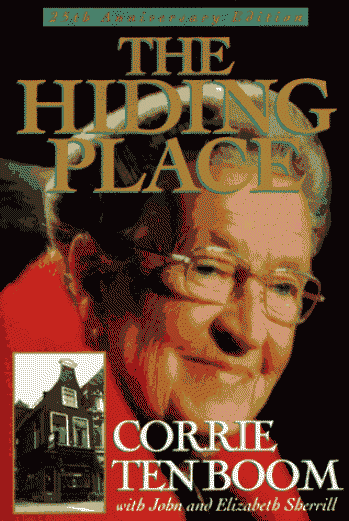
I could focus on the fact that at many points while reading this book, it seemed like a repeat of cliche's I've heard over and over again. "Give it to God." "Be self-controlled and don't give up!" "Make good goals and a plan; follow through."
That's what a lot of it was. I haven't read any diet books before, or any Christian books particularly relating to weight-loss, but I've heard all those things before. And I've always shrugged them off. "I'm not overweight," I would think. "God is more concerned with my heart anyway; I need to worry about that first, and not be so superficial."
So even though I've heard many of the ideas of this book before, THIS FEELS DIFFERENT because I am now poised and ready to make a change. It's not because I'm overweight or superficial, but I'm making a New Year's Resolution for weight loss for the first time ever as a direct result of this book.
Some quotes... "I do my best to honor my body by giving it the best option I can." [And she encourages others to] "stop looking at dining out as an entitlement to pamper your passion" (173). Ouch.
"I knew that abusing my body with food was a bad habit for me, but since I wasn't hurting anyone else, I hadn't seen it as sin. I finally understood. He created me. My body is a temple to be used by Him and for Him. He desires that we seek a spiritual transformation, not merely a moral one" (182-183).
"Life takes time, and we need to remember that--it takes time" (194).
"If I have learned anything from my experience with trials, it's this: I need to take that step of patience now--not tonight, not tomorrow--right now. Push the food to the side today. Why? Because it's not going to comfort me the way that I think it will. And guess what? That food will still be there tomorrow.
"Some might say, 'It's just food. Get real!' But no, it's not just food any more than gold is just gold. When your life molds or shapes it into something you idolize, or use to tranquilize, it becomes your golden calf" (195).
Candace's wise words have helped me see things in a whole new light. Here are the two main changes:
1) She helped me realize that I look to food for fulfillment. In the past I've justified my view of food by saying I'm just enjoying a gift from God, but in my heart I know the truth: I think about, long for, and crave food too much. It is an idol. I love sweets, eating out, eating good cooking, and if I'm honest I usually enjoy them more than the company of those at the table, I don't have a thought --least of all of gratitude-- toward God, and as soon as it's over, I'm thinking about what will come next. I have a pattern of over-eating, trying to get that full feeling, to find fulfillment. It is kind of shocking to realize this... am I not to be filled with the Spirit?? Shouldn't that be enough? Years ago, I practiced fasting from time to time. Now I think I need to daily (hourly) re-focus myself as to what I need for energy, fuel, and what will truly satisfy.
2) She helped me realize that over-eating, not exercising, not taking care of this temple--ie, not being self-controlled is truly a SIN. We tend in our culture to rank sins. So many Christians seem to think that homosexuality and abortion are the only ones that "count." In my circles, it seems that not having daily devotions is THE WORST. So many of us (me included) tend to think of certain kinds of things as "optional," though the Bible would say otherwise. It's not a choice to be COMPLETELY SURRENDERED to my God and find all fulfillment in him, to not think one thought anything short of love, to not "beat my body and make it a slave." I have many reasons to try to be healthier and lose weight-- I feel better (happier, more energetic), to look good for my husband, I am able to do more (hike with friends, etc). The thing stopping me is laziness and lack of conviction. And that cannot be.
My desire in this endeavor is to fulfill Elisabeth Elliot's words, "Discipline begets discipline." I mean that if I can be disciplined in this area of life, I know it will spread to others.




